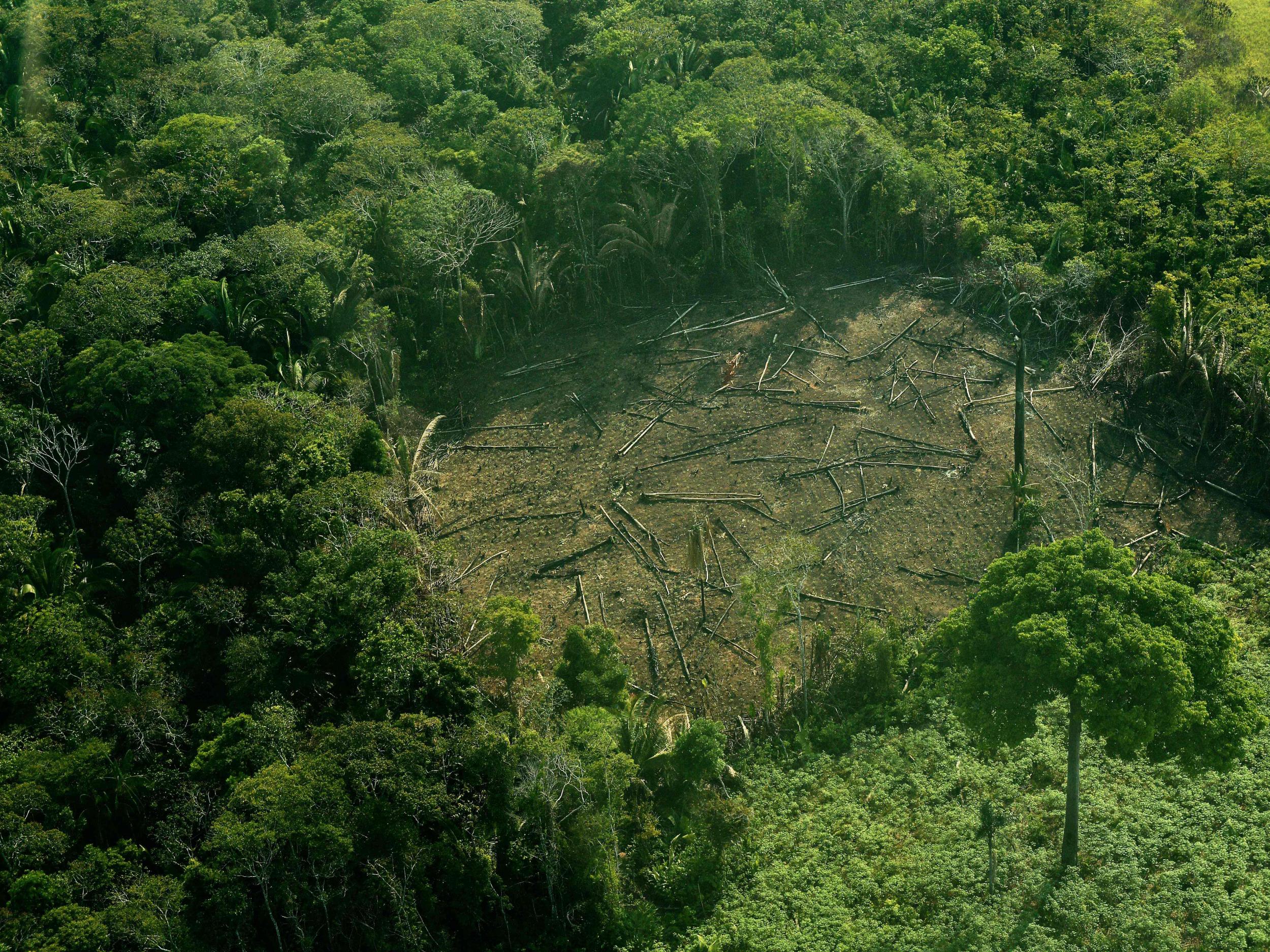Lifting sugarcane farming ban would be 'last straw' for Amazon rainforest, warn Brazilian environmentalists
'If passed, the bill will be a tragedy for forests and for the biofuel industry in Brazil – the image of which will be damaged to the brink of no return'

Your support helps us to tell the story
From reproductive rights to climate change to Big Tech, The Independent is on the ground when the story is developing. Whether it's investigating the financials of Elon Musk's pro-Trump PAC or producing our latest documentary, 'The A Word', which shines a light on the American women fighting for reproductive rights, we know how important it is to parse out the facts from the messaging.
At such a critical moment in US history, we need reporters on the ground. Your donation allows us to keep sending journalists to speak to both sides of the story.
The Independent is trusted by Americans across the entire political spectrum. And unlike many other quality news outlets, we choose not to lock Americans out of our reporting and analysis with paywalls. We believe quality journalism should be available to everyone, paid for by those who can afford it.
Your support makes all the difference.Environmentalists in Brazil have urged the government not to proceed with a change in the law described as the “last straw” for the Amazon rainforest.
The Brazilian senate is set to vote on a bill that could see the eight-year-old ban on farming sugarcane for biofuel production in the Amazon lifted.
In an open letter, 60 NGOs including Greenpeace and WWF have warned of the implications this decision would have, both for the rainforest itself and the reputation of the biofuels industry.
They have been joined in their condemnation of the bill by several former Brazilian environment ministers.
The letter states: “If passed, the bill will be a tragedy for forests and for the biofuel industry in Brazil – the image of which will be damaged to the brink of no return, at a time critical to its success”.
There is also concern that Brazil’s Paris climate agreement targets will be compromised if its ethanol production is not sustainable.
Supporters of the new bill say it will benefit the economy and help contribute to the national supply of biofuels.
However, environmentalists, scientists and even representatives from the biofuels industry say there is no need for more land to grow sugarcane, and the expansion of the industry will further drive deforestation of the rainforest.
“The opening of the Amazon to sugarcane production is the last straw for its destruction,” said former Environment Minister Marina Silva.
“This is not economic need, it is clinging onto the past. It is not even in the interests of the sugarcane ethanol sector.”
Brazil’s Sugarcane Industry Association has joined environmental groups and scientists speaking out against the bill.
According to their data, there is already enough space in Brazil to double production of sugarcane without expanding into areas that threaten the rainforest.
If sugarcane is authorised on deforested land in the Amazon, experts say livestock farming will be pushed into new areas of the forest to make way for its cultivation.
The signatories of the letter warned that it sends the message that Brazil’s bioethanol sector is “a joke”, as the country is “incapable of upholding an environmental safeguard on a subject discussed with the sector and agreed upon nearly a decade ago”.
“This bill follows a trend observed in recent years of a return to land use policy decisions based on agricultural and livestock economic interests, aiming to continually expand agriculture and livestock commodities into new areas,” said Dr Carlos Nobre, a climate scientist and member of the Brazilian Science Academy.
“If passed, it will be yet another driver of deforestation, directly or indirectly.
“There is no economic justification, as any possible increase in demand of bioethanol or sugar could be met with increased productivity where sugarcane already exists.”
Join our commenting forum
Join thought-provoking conversations, follow other Independent readers and see their replies
Comments